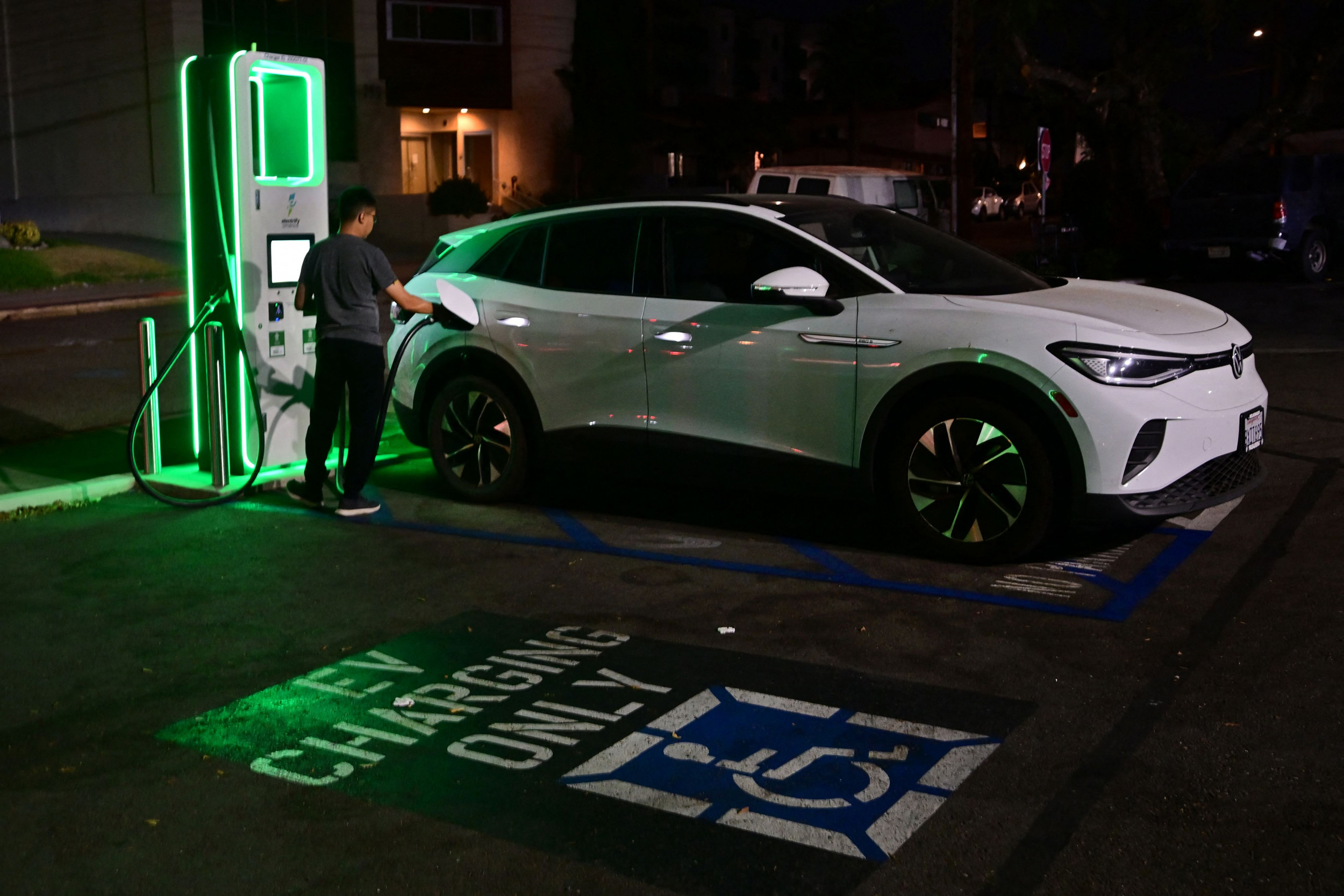Car Dealers Renew Fight Against Electric Vehicle Mandates

Table of Contents
Economic Concerns of Car Dealerships Facing EV Mandates
The transition to an EV-centric market presents significant financial burdens for car dealerships. The high initial investment costs associated with EV infrastructure are a major concern. Dealerships must invest heavily in:
- Charging station installation: The cost of installing and maintaining sufficient charging stations to meet the anticipated demand for EV charging is substantial.
- Specialized tools and equipment: Servicing EVs requires specialized tools and training, representing a considerable upfront investment.
- Staff training and expertise: Dealership staff need extensive training to diagnose and repair EV components, adding to operational costs.
Furthermore, current EV sales margins are often lower than those of traditional gasoline-powered vehicles, potentially decreasing dealership profitability. This is compounded by concerns about a decreased demand for used gasoline vehicles, further impacting revenue streams. One industry expert noted, “The current trajectory of EV mandates threatens the financial viability of many dealerships, particularly smaller, independent ones.” The lack of concrete data on long-term EV sales profitability only exacerbates these fears. The potential impact on dealership profitability and the used car market needs immediate attention and detailed analysis.
Challenges in Meeting EV Mandate Requirements
Beyond the economic concerns, car dealerships face significant logistical hurdles in meeting the requirements of EV mandates. These challenges include:
- Limited EV model availability: Manufacturers are struggling to keep pace with demand, resulting in limited model availability for dealerships.
- EV inventory challenges: Securing sufficient EV inventory to meet sales targets set by increasingly stringent mandates is proving extremely difficult.
- EV-specific service and repair: The specialized skills and equipment needed for EV service and repair create significant logistical and training challenges.
- Lack of consumer adoption: In some markets, consumer understanding and acceptance of EVs remain limited, hindering demand and making it harder to justify the significant investments required.
The discrepancy between the aggressive timelines set by many EV mandates and the industry's current preparedness is a major source of contention. Dealerships argue that a more gradual transition would allow for a more manageable and sustainable shift to EV sales. The current situation risks leaving many dealerships unprepared and potentially unsustainable.
Alternative Solutions and Policy Recommendations
Instead of imposing rigid mandates, policymakers should explore alternative strategies that promote EV adoption in a more sustainable manner. These include:
- Incentivizing EV purchases: Offering generous tax credits or rebates to consumers can significantly boost EV demand.
- Investing in public charging infrastructure: A robust public charging network is essential to address consumer range anxiety and encourage EV adoption.
- Consumer education campaigns: Targeted campaigns to educate consumers about the benefits of EVs can increase acceptance and demand.
- Phased implementation of EV mandates: A gradual approach allows the industry time to adapt and ensure a smoother transition.
Collaboration between governments, manufacturers, and dealerships is crucial. A more collaborative approach, focusing on a phased rollout of EV mandates, could mitigate the risks to dealerships while still achieving the goal of increasing EV adoption. This collaborative strategy should focus on addressing both consumer demand and dealer readiness.
The Role of Consumer Demand in the Debate
The feasibility of EV mandates is heavily reliant on consumer demand. While EV market share is growing, it remains a relatively small percentage of total vehicle sales in many regions. Understanding consumer sentiment towards EVs – including concerns about range, charging infrastructure, and purchase price – is crucial. Statistics on EV adoption rates and consumer surveys on EV preferences are essential to accurately assess market readiness for widespread EV adoption. A disconnect between government mandates and actual consumer demand can exacerbate the challenges faced by dealerships.
Conclusion: The Ongoing Battle Over Electric Vehicle Mandates
Car dealers’ opposition to electric vehicle mandates stems from legitimate economic and logistical concerns. The high upfront costs of EV infrastructure, lower margins on EV sales, and challenges in meeting rapidly evolving mandates create significant risks for dealerships. Instead of rigid mandates, a collaborative approach focusing on incentives, robust public charging infrastructure, consumer education, and phased implementation is necessary. Understanding the complexities of electric vehicle mandates is crucial for the future of sustainable transportation, and continued discussion is needed to find solutions that benefit both consumers and the automotive industry.

Featured Posts
-
 Transgender Individuals And The Impact Of Trumps Executive Orders Your Experiences Matter
May 10, 2025
Transgender Individuals And The Impact Of Trumps Executive Orders Your Experiences Matter
May 10, 2025 -
 Chinas Canola Strategy Beyond Canada
May 10, 2025
Chinas Canola Strategy Beyond Canada
May 10, 2025 -
 Vozvraschenie Stivena Kinga Na X Oskorblenie Ilona Maska
May 10, 2025
Vozvraschenie Stivena Kinga Na X Oskorblenie Ilona Maska
May 10, 2025 -
 Golden Knights Win Adin Hills Stellar Performance Shutouts Columbus
May 10, 2025
Golden Knights Win Adin Hills Stellar Performance Shutouts Columbus
May 10, 2025 -
 France Poland Friendship Treaty Macron Announces Signing Next Month
May 10, 2025
France Poland Friendship Treaty Macron Announces Signing Next Month
May 10, 2025
